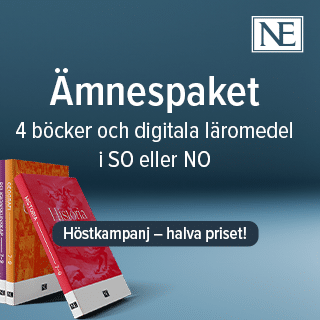På spaning efter idrottsdidaktik
Katarina Schenker
Bo Carlsson, Jan-Eric Ekberg
Professor Håkan Larsson
Malmö högskola
2011-05-27
På spaning efter idrottsdidaktik
Fakulteten för lärande och samhälle
På spaning efter idrottsdidaktik
För ämneslärarexamen krävs att studenterna ska kunna bidra till kunskapsutvecklingen inom ämnesdidaktik. För lärarprogram med inriktning mot undervisning i Idrott och hälsa medför det att begreppet idrottsdidaktik behöver tydliggöras. I denna avhandling behandlas idrottsdidaktik som begrepp och som redskap för reflektion över idrottsundervisning. Idrottsdidaktik härleds från didaktik och olika ämnesdidaktiska discipliner, däribland den idrottsdidaktiska. Utifrån härledningen konstrueras också ett idrottsdidaktiskt analysverktyg som används för att analysera kurslitteratur och undervisningsmodeller som förekommer vid lärarprogram med inriktning mot undervisning i skolämnet Idrott och hälsa. Särskilt fokuseras kurslitteratur som behandlar dans, orientering, simning och bollspel.
Abstract in English
In search of sport didactics The aim of this thesis is to examine sport didactics as a concept and tool for reflecting on PE education. An additional aim is to analyze course literature and teaching models. Special focus is given to mandatory course literature devoted to dance, orienteering, swimming and ball games. The thesis starts by considering the concept of didactics. Further, different traditions in subject-matter didactics, including that of sport didactics, are compared. Different countries have different traditions, as do different disciplines, which enables researchers to approach subject-matter didactics from different backgrounds. Comparisons also show that subject-matter didactics, including sport didactics, need not be limited to dealing with school education but can also relate to other educational activities. On this basis a number of concepts describing sport didactics have been identified: teaching models, sport pedagogy models, theory of sport didactics, teaching method, teaching concept, societal pedagogical principle, the anatomy of teaching models and sport pedagogical reflection. The concepts are used to construct the tool to be used for analyzing the course literature. On the basis of the derivation of the concept, sport didactics is described as a tool for reflection on the sport teaching-studying-learning process. By applying different concepts sport didactics combines micro perspectives in the form of natural and behavioural science knowledge about learning and about the human body in motion with macro perspectives in the form of humanist-social science knowledge about learning, teaching and sporting in society. The analyze of course literature and teaching models required empirics in the form of course literature in the areas of ball games, dance, orienteering and swimming. Four physical education (PE) teacher programmes were chosen. The overwhelming character of the literature is uncritical, mainly concerning fostering with the focus on body culture (performance, experience, health/utility). The language of sport, together with tried experience, frequently constitutes the basis for being able to reflect on and talk about the teaching process and pupil development. The thesis demonstrates that sport didactics has the potential to ground teaching practice scientifically. The greatest challenge may be to tackle its close relation to sport. Sport & Health in school coexists with the sport movement and other organizations which advocate physical activity. There will probably always be interested parties with a desire to have an influence on the mission and content of the subject, to whom PE teacher education programmes as well as those representing the school subject are obliged to relate.
Relaterade länkar

Fritidshem
 Åk F–6
Åk F–6 Matematikångest
 Åk 4–Vux
Åk 4–Vux 






